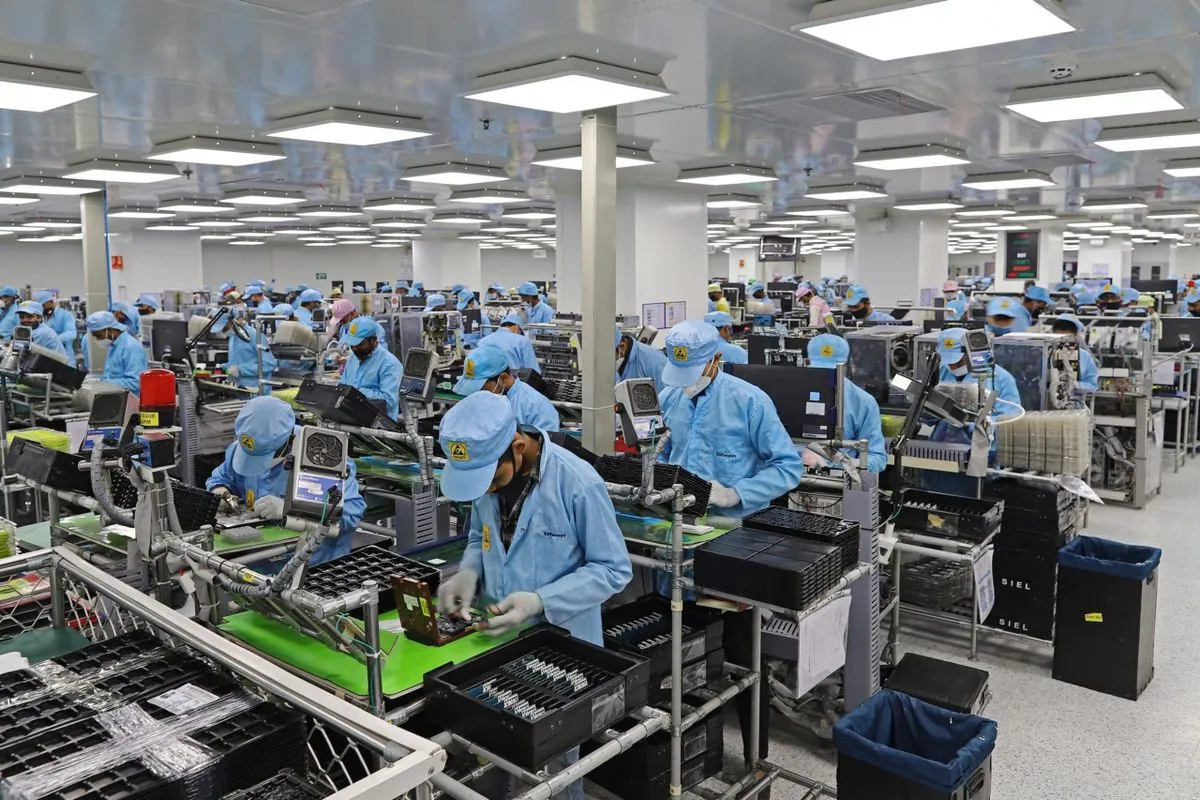In a significant development at one of Samsung Electronics' key manufacturing facilities in India, workers have entered their third day of protest, demanding improved wages and working conditions. The ongoing boycott, which began on September 11, 2023, has disrupted operations at the Sriperumbudur plant near Chennai, a crucial contributor to Samsung's annual revenue in the country.
The facility, which produces a range of consumer electronics including televisions, refrigerators, and washing machines, accounts for approximately 20-30% of Samsung's yearly $12 billion revenue in India. This protest marks a notable event in the company's 29-year presence in the country, where it has established a significant foothold since its entry in 1995.
Workers are calling for union recognition, wage increases, and better working hours. The protest has drawn attention from top executives, including JB Park, CEO of Samsung Southwest Asia, who have traveled to the site to address the situation.
Outside the factory, employees clad in Samsung's signature blue uniforms have gathered, chanting slogans of solidarity and determination. Many have taken shelter in makeshift tents, demonstrating their resolve to continue the protest until their demands are met.
Samsung India has stated that they are actively engaging with workers to address grievances and ensure compliance with all relevant laws and regulations. However, the ongoing protest suggests that a resolution has yet to be reached.
It's worth noting that Samsung's presence in India extends beyond this single facility. The company operates another plant in the northern state of Uttar Pradesh, which focuses on smartphone production and has not reported any labor unrest. In fact, Samsung opened the world's largest mobile phone manufacturing facility in Noida, India, in 2018, underlining its commitment to the Indian market.
Samsung's history in India is marked by significant milestones. The company established its first R&D center in Bangalore in 1996, just a year after entering the Indian market. Today, Samsung employs over 70,000 people across various divisions in India and has built a vast retail network of more than 180,000 stores throughout the country.
The current situation at the Sriperumbudur plant highlights the challenges faced by global corporations in managing labor relations across diverse markets. As Samsung continues to be a major player in India's consumer electronics sector, the resolution of this protest could have implications for its operations and reputation in one of its key markets.
"We will stand together and secure a win"
This protest comes at a time when Samsung is celebrating its 55th anniversary since its founding in 1969. From its humble beginnings as a black-and-white television manufacturer in 1970, Samsung has grown to become the world's largest manufacturer of consumer electronics by revenue. The company's journey includes significant achievements such as becoming the world's largest mobile phone maker by unit sales in 2012 and surpassing Intel as the largest semiconductor chip maker by revenue in 2017.
As the situation unfolds, all eyes are on Samsung and its ability to address worker concerns while maintaining its strong position in the Indian market. The outcome of this protest could potentially influence labor relations in the broader consumer electronics industry in India.
